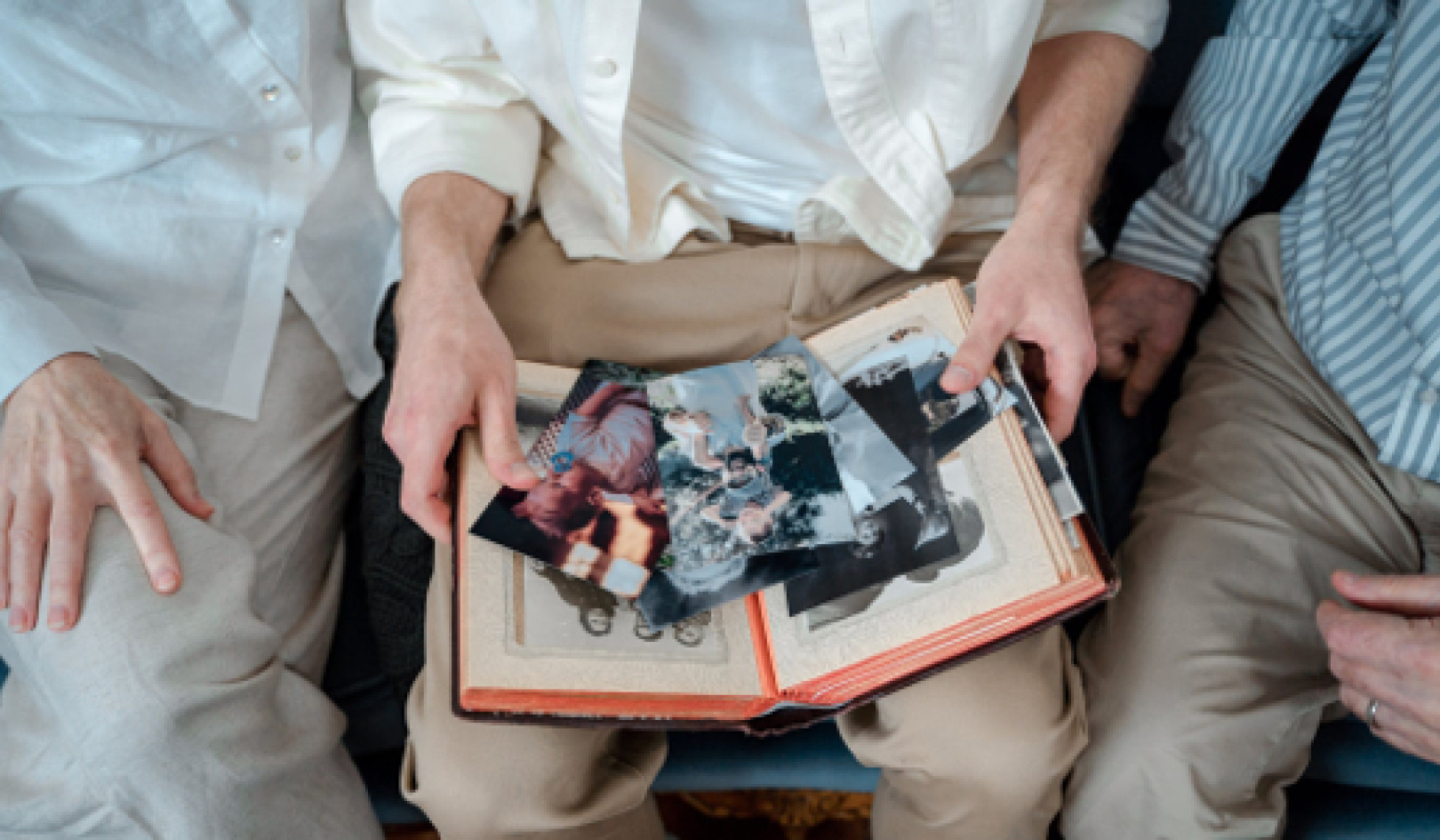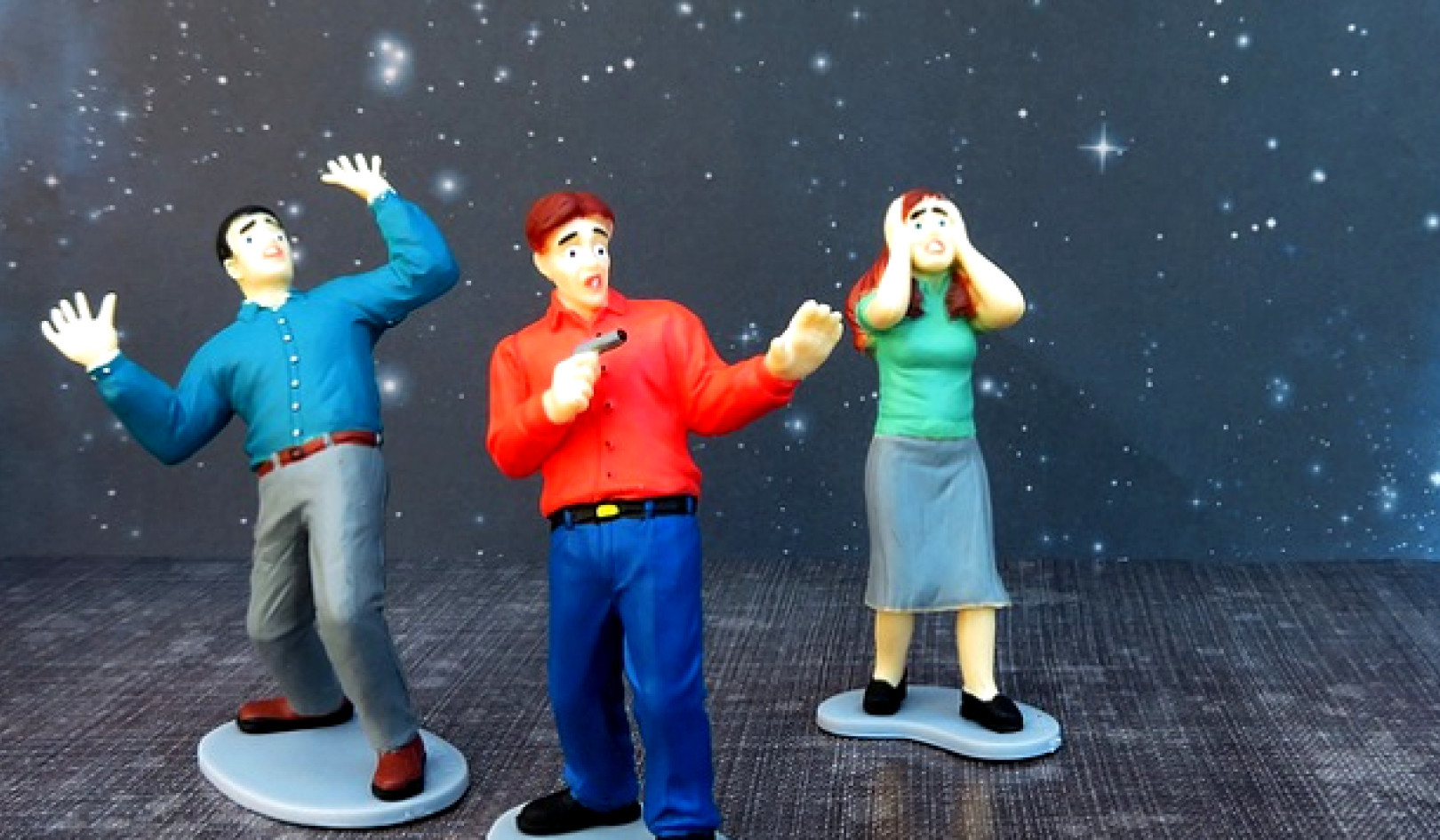
There is a lovely teaching (or ‘Sutra’) of the Buddha that clearly illustrates the importance of acceptance. It is called the “Sutra of the Arrows” and it relates how even the good and the wise are regularly struck by the first arrow, which is that of the unavoidable pain of life. All of us – even saints – have to experience the pain of illness, loss, disappointments, ups and downs, aging and death.
Most of us, however, are struck by a second arrow, which is more painful than the first, because it lands in the area of the body that is already inflamed by the wound of the first arrow. This is the arrow of ‘resistance obsession’: not wanting to feel the pain of the first arrow. So many of us put a huge amount of energy into resisting, avoiding, suppressing or dissociating from the first arrow, because we do not want to feel the pain.
The wise ones realise that this simply does not work, but the rest of us are so caught up in our habitual preferences that we feel not only the pain of the first arrow, but also the suffering inflicted by the second. According to Rob Nairn (MA lecture 2008), the first arrow is 10% and the second arrow 90% of the problem.
As Clive Holmes (MA lecture 2009) aptly pointed out, in modern times many of us are struck by a third arrow (not part of the original Sutra), which can become a fatal blow to our sense of self-worth. This is the arrow of thinking that something is wrong with us, because we have been struck by two arrows. This is the arrow of shame, which is a great scourge in the West. In the words of Paul Gilbert:
Shame is that self we do not want to feel and do not want to be in touch with. It comes with a feeling that there is something not quite right, or indeed very wrong with us; that if people knew what was going on in our minds they would not like us very much and might even be repelled by us... The problem with shame is that not only does it put us into hiding from others, but also from ourselves. -- Gilbert and Choden (2013, pp 193–196)
The remedy to the first two arrows is acceptance. By learning to face the reality of our experience, we allow ourselves to feel the pain of the first arrow. The antidote to the second arrow of ‘resistance obsession’ comes from accepting and seeing clearly the painful and difficult feelings, emotions and mind states that arise within us.
Self-compassion is the antidote to the feelings of unworthiness and shame caused by the third arrow. It brings kindness and support to the person ‘in here’ who is struggling to cope with the first two arrows.
Acceptance Of What Arises Within Our Inner World
Something important to bear in mind with acceptance is that we are discussing it in relation to the internal environment of the mind, with its involuntary arising of thoughts, emotions and sensations. We are not talking about acceptance of outer events and situations; although if we cultivate acceptance of what arises within our inner world, this will inform how we relate to the external world. The important point here is that different rules apply to the inner and the outer world.
At the level of the outer world we might well need to stand up to things and be proactive. Many people think that acceptance means being apathetic in the face of social injustice and doing nothing. This is a big misconception.
When we speak about acceptance in the context of Mindfulness, we are referring to the inner level of how we relate to what arises within the mind. Here it might be more skillful to do nothing, be the impartial witness of what arises and make space for our thoughts and feelings to unfold in their own way.
In this case all we need to know about an issue or an experience will be revealed, by giving our thoughts and feelings space to play themselves out. We don’t have to do anything. Trying to resolve and understand an issue tends to get us stuck in dwelling, ruminating and picking at our thoughts and feelings. This is counterproductive, because it involves compulsive thinking activity, which is precisely what created our problems in the first place.
As Rob Nairn likes to say (MA lecture, 2009):
Little Bo Peep has lost her sheep and doesn’t know where to find them, but just leave them alone and they will come home, bringing their TALES (not tails!) behind them.
In this analogy, the sheep are our thoughts and if we leave them alone they will tell us their tales; that is they will reveal what we need to know about them, or the underlying issues that lie beneath them. They only do this, however, if we leave them alone and this involves unconditional acceptance of whatever is arising within the mind.
Practicing Acceptance: RAIN method
There is a very accessible method for practising acceptance that goes by the acronym RAIN. RAIN is a way of approaching, befriending and making space for difficult emotions or mind states that arise within us. However, as psychologist Paul Gilbert has pointed out, many people have trouble accepting positive emotions, so RAIN can apply equally to negative and positive emotions, mind states and any thought patterns that we have trouble ‘letting in’.
The four stages of RAIN are as follows:
Recognise – noticing what arises within the mind;
Allow – allowing what arises within the mind to do so on its own terms, without engaging or interfering with it;
Intimate Attention – paying close attention to thoughts, emotions and mind states, particularly those which recur;
Non-identification – making space for these thoughts, emotions and mind states to move through us, recognising that they are changing all the time and do not define who we are.
To assist our understanding of the RAIN method of acceptance, we can think of our mind like a guesthouse, with the guests that come and go being like the different thoughts, emotions and mind states that move through us.
“The Guest House” by Rumi
This being human is a guesthouse
Every morning a new arrival
A joy, a depression, a meanness,
some momentary awareness comes
as an unexpected visitor.
Welcome and entertain them all!
Even if they are a crowd of sorrows,
Who violently sweep your house
empty of its furniture,
still, treat each guest honourably.
He may be clearing you out
for some new delight.
The dark thought, the shame, the malice,
meet them at the door laughing,
and invite them in.
Be grateful for whoever comes,
because each has been sent
as a guide from beyond.
©2017 by Choden and Heather Regan-Addis.
Publisher: O Books, imprint of John Hunt Publishing Ltd.
All Rights Reserved. www.o-books.comwww.o-books.com
Article Source
Mindfulness Based Living Course: A self-help version of the popular Mindfulness eight-week course, emphasising kindness and self-compassion, including guided meditations
by Choden and Heather Regan-Addis.
 Mindfulness is an innate capacity of the mind that can be trained to alleviate stress and low mood, to reduce the power of rumination and self criticism, and to evoke emotional well being and proactivity. The Mindfulness Based Living Course is a practical guide to the development of a mindful approach to living in the modern world. Its distinctive feature is a compassionate approach to mindfulness that is based on many years of experience in the practice and delivery of mindfulness training by two of its leading exponents - the former Buddhist monk Choden and Heather Regan-Addis, both directors of the Mindfulness Association. (Also available in Kindle format)
Mindfulness is an innate capacity of the mind that can be trained to alleviate stress and low mood, to reduce the power of rumination and self criticism, and to evoke emotional well being and proactivity. The Mindfulness Based Living Course is a practical guide to the development of a mindful approach to living in the modern world. Its distinctive feature is a compassionate approach to mindfulness that is based on many years of experience in the practice and delivery of mindfulness training by two of its leading exponents - the former Buddhist monk Choden and Heather Regan-Addis, both directors of the Mindfulness Association. (Also available in Kindle format)
About the Authors
 Formerly a monk within the Karma Kagyu tradition of Tibetan Buddhism, Choden (aka Sean McGovern) completed a three-year, three-month retreat in 1997 and has been a practicing Buddhist since 1985. He co-wrote the bestselling Mindful Compassion with Prof. Paul Gilbert in 2013.
Formerly a monk within the Karma Kagyu tradition of Tibetan Buddhism, Choden (aka Sean McGovern) completed a three-year, three-month retreat in 1997 and has been a practicing Buddhist since 1985. He co-wrote the bestselling Mindful Compassion with Prof. Paul Gilbert in 2013.
 Heather Regan-Addis began training in Mindfulness with Rob Nairn in 2004. She is a British Wheel of Yoga trained yoga teacher, has a PGDip in Mindfulness Based Approaches from the University of Bangor, Wales and a Masters Degree in Studies in Mindfulness from the University of Aberdeen, Scotland.
Heather Regan-Addis began training in Mindfulness with Rob Nairn in 2004. She is a British Wheel of Yoga trained yoga teacher, has a PGDip in Mindfulness Based Approaches from the University of Bangor, Wales and a Masters Degree in Studies in Mindfulness from the University of Aberdeen, Scotland.
Related Books
at InnerSelf Market and Amazon

























